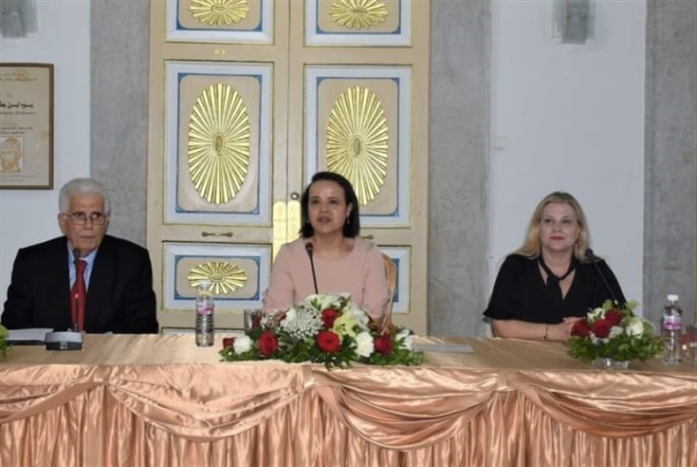This conference discusses Al-Sharafi’s contributions to the analysis and study of religious discourse and the history of religions through a series of lectures and techniques such as Fathi Al-Triqi’s Approach to Modernity and Identity, Women and the Production of Religious Knowledge in the Field of Islam by Zahia Gweru and “To Another History of the Qur’an or: The News is Not Like the Eye” by Bassam al-Jamal, “The Undoubted Facts of the Islamic Text: The Hadith of the Prophet as a Model ”by Muhammad Hamza, and“ The History of the Qur’an through Muslim Texts from the Books of the Magi ”by Hunaida Hafsa. Also from the conference lectures: “The position of Abdul-Majid al-Sharafi towards political Islam” by Al-Manji al-Aswad, “Al-Makki and Al-Madani between the dilemma of classification and mind of justification… to calm the hearts ”by Abd al-Basita al- Kamudi and“ The Approach to Human Rights in the Writings of Abdul-Majid al-Sharafi ”by Nader al-Hamami and others such as Wahid al- Saafi, Zubair Arus, Abdul Salam al -Issawi, Raja bin Salama, Muhammad Mahjoub, Munir Al -Fandari, Hammadi Doib…
The conference also included some testimonies about Abdelmajid al-Sharafi from his colleagues and students who became senior professors at the University of Tunis. These testimonies summarize the extent of Abdul Majid ash-Sharafi’s contribution to the study of Arab-Islamic thought, especially the methods of study and analysis of religious heritage. The list includes a large number of professors, such as Muhammad al-Huni, leader of the League of Arab Rationalists, Tawfiq bin Amer, Hammadi Samoud, Naila al-Selini, al-Sadiq Belaid, al-Monsef Abdel-Jalil, Ayad bin Ahur, Salim Laghmani, Kulsum Maziu Al-Dari, Munira Shabotto Al-Ramadi, Najiya Al-Warimi and others. The conference opened with a note on the career of Abdul Majid Al-Sharafi.
Over the course of more than half a century, Abdul Majid al-Sharafi has published several books, including Islam Between Message and History, Islam and Modernity, Islamic Thought in Response to Christians, and False Intuitions in Islamic Thought. He also became Dean of the Faculty of Literature and Humanities in Tunis (the university’s oldest institution) in the 1980s and is known for his defense of university independence and his call to benefit from the modern curriculum. when reading religious texts. He underwent atonement, as some of his books were confiscated last season.
Source: Al-Akhbar
